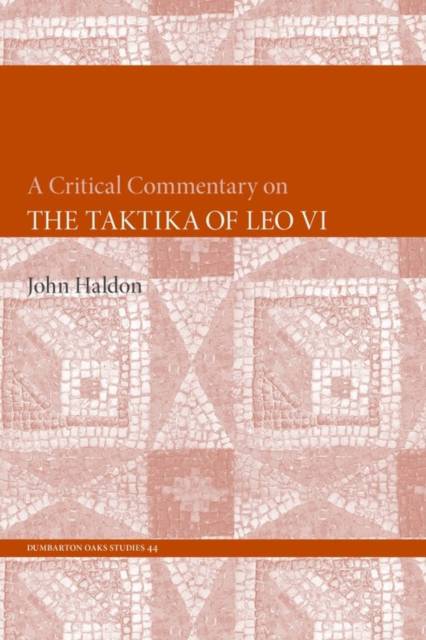
Door een staking bij bpost kan je online bestelling op dit moment iets langer onderweg zijn dan voorzien. Dringend iets nodig? Onze winkels ontvangen jou met open armen!
- Afhalen na 1 uur in een winkel met voorraad
- Gratis thuislevering in België vanaf € 30
- Ruim aanbod met 7 miljoen producten
Door een staking bij bpost kan je online bestelling op dit moment iets langer onderweg zijn dan voorzien. Dringend iets nodig? Onze winkels ontvangen jou met open armen!
- Afhalen na 1 uur in een winkel met voorraad
- Gratis thuislevering in België vanaf € 30
- Ruim aanbod met 7 miljoen producten
Zoeken
Omschrijving
The Taktika, ascribed to the hand of the Byzantine emperor Leo VI "the Wise" (886-912), is perhaps one of the best-known middle Byzantine texts of an official or semi-official genre. Presented in the form of a book of guidance for provincial generals, it served as both a statement of imperial authority and power, as well as a reminder of earlier "good practice" and the centrality of the values of a Christian society in the struggle against its enemies. In particular, the Taktika identified Islam, for the first time, as a fundamental threat to the very existence of the Christian Roman Empire and Christianity itself. Yet despite its significance for the history of Byzantine administration, culture, language, and society, no study has ever been devoted to this fascinating text. John Haldon offers the first critical commentary to appear in any language, addressing in detail the many varied subjects touched on in the treatise itself and accompanied by three introductory chapters that examine the context, sources, language, structure and content of the text, as well as the military administration of the empire in Leo's time.
Specificaties
Betrokkenen
- Auteur(s):
- Uitgeverij:
Inhoud
- Aantal bladzijden:
- 592
- Taal:
- Engels
- Reeks:
- Reeksnummer:
- nr. 44
Eigenschappen
- Productcode (EAN):
- 9780884023913
- Verschijningsdatum:
- 17/03/2014
- Uitvoering:
- Paperback
- Formaat:
- Trade paperback (VS)
- Afmetingen:
- 157 mm x 226 mm
- Gewicht:
- 793 g

Alleen bij Standaard Boekhandel
+ 103 punten op je klantenkaart van Standaard Boekhandel
Beoordelingen
We publiceren alleen reviews die voldoen aan de voorwaarden voor reviews. Bekijk onze voorwaarden voor reviews.











